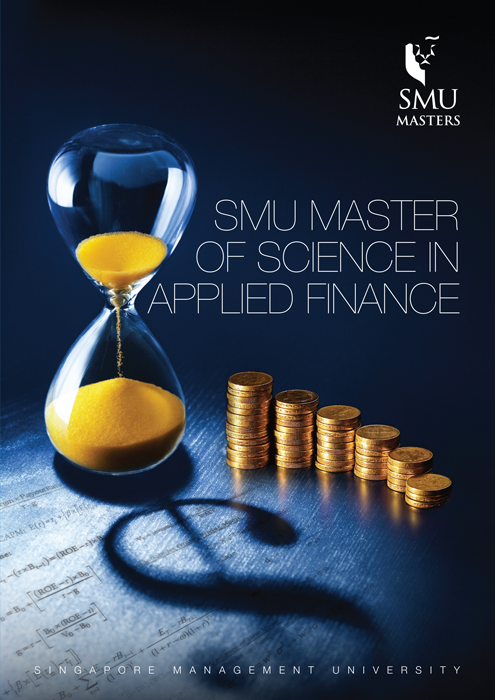
Global recessions, market upheavals, lockdowns and an ensuing drop in consumer spending: Covid-19 certainly upended the world of finance and brought mergers and acquisitions (M&As) to a virtual standstill in 2020. No sector was immune from the impact of Covid-19, not least M&A activities, which saw a collapse to record lows last year.
Referring to transactions whereby the ownership of privately-held companies change hands or entities are consolidated, the volume and value of M&A activity often reflect the ebb and flow of the economy. And while the pandemic brought M&A transactions to a screeching halt during the onset of the pandemic, 2021 bore witness to a merger boom: Pending deals totalled almost US$1 trillion this year, and global M&As in Q1 2021 outperformed the same period in 2020 by nearly 28.8 per cent.
To navigate this rollercoaster of a ride that is the M&A market, we speak with LKCSB Associate Professor of Finance Fu Fangjian, whose research interests include corporate finance and empirical asset pricing. He shares insights on sectors primed for M&A action, changes in M&A strategies in a post-pandemic climate, and potential challenges that companies may face in the new normal.
The great pandemic impact
According to Fangjian, M&A activities experienced a V-shaped trajectory during the pandemic period: As Covid-19 began to spread worldwide in early-2020, M&A activities plummeted in the second quarter. This was unsurprising given that the pandemic created significant uncertainty in business prospects and led to volatility in asset value.
"Uncertainty is the biggest enemy of corporate investments, including mergers," remarks Fangjian.
"Changes in asset value resulted in many pending deals withdrawn. For example, Xerox dropped its takeover bid for HP, Softbank terminated its tender offer to WeWork, and LVMH walked away from its agreed acquisition of Tiffany & Co."
However, M&A activities quickly rebounded in the second half of 2020 and exceeded their pre-pandemic intensity, a boom that continued well into 2021. According to Fangjian, this was partly due to abundant liquidity in the market resulting from government stimulant monetary policies and the uptick in technological adoption, such as the use of video conferencing tools like Zoom, e-commerce platforms like Amazon and content streaming platforms like Netflix.
“When the dust settles, it’s time to work,” he says. After the initial shock, many firms quickly realized they needed to catch the opportunity to restructure their old business models to stay afloat, or liquidate their business for a good price. M&A is certainly an effective tool of corporate restructuring.
Another man's gain
The pandemic has changed consumer behaviour dramatically, notes Fangjian, as we became more reliant on online shopping and accustomed to remote learning and having food delivered instead of visiting food establishments due to lockdowns and restrictions.
"The pandemic is certainly bad news for bars and restaurants, movie theatres, retailers with physical stores, and travel-related business such as airlines, hotels, and tourism," shares Fangjian.
"We may see rebounds for some of these businesses when the pandemic is over, but some may never see a full comeback because people have already adapted to the new way of life."
Poorly-performing businesses may need to explore the sale of all or some of their entities for survival— especially when government relief packages dry up, or interest and tax rates rise. Companies with adequate financial slack — that is, businesses with ready access to cash, marketable securities, and saleable assets- can capitalise on the opportunity to snap up low-priced competitors to extend their market share.
"Many businesses currently struggling for survival may go bankrupt, and some would be targets of cash-rich firms," warns Fangjian.
"Many big companies are hoarding cash and waiting for the moment to 'attack their preys'. I noticed that recently the US Fed is already discussing reducing purchases of government bonds and even increasing interest rates at some point in time. We will see hard times for some businesses and more mergers and acquisitions in time to come."
The new face of dealmaking
The pandemic has reshaped the way deals are made, as stakeholders are less likely to meet in person due to travel restrictions and social distancing measures. This move impacted the negotiation and due diligence process, with much of the work done through online meetings. Virtual negotiations may well be the new norm, especially during the initial rounds of M&A talks, even after the pandemic.
Moreover, the unstable market environment has resulted in the valuation of target firms becoming more volatile and uncertain than before. To prevent losses, acquirers are reluctant to pay by cash and tend to leverage stock as payment methods and other features such as earnouts to balance out the massive volatility of the target value.
"In terms of M&A strategies, one popular new mechanism deserves mention – Special Purpose Acquisition Companies (SPACs)," highlights Fangjian.
"During the pandemic period, SPACs have grown substantially – the funds they raised in the IPO market exceeded those of regular IPO firms for the first time."
SPACs are "blank-check companies" with no commercial operations that raise funds through initial public offerings (IPOs) for the sole purpose of acquiring a target firm with an operational business. They gained favour during the disruption to the traditional IPO process caused by Covid-19 as a more viable and lower-risk IPO route. The rise of SPACs now offers greater opportunities for private firms seeking a public listing, with SPAC mergers becoming a "de facto IPO strategy" as shares can then be listed and traded in the stock exchanges after the merger.
"The world is full of innovations, and we usually see more of them during volatile times," notes Fangjian.
"Crisis in Chinese — 危机 (wēi jī)— means both danger and opportunity. The pandemic could be a huge danger for many firms, industries, and even countries, but it could also be a great opportunity for others."
Challenges in the new normal
Covid-19 has accelerated the digital transformation of almost every industry and made remote working a new reality for many companies worldwide. To cater to firms' needs in an all-virtual work environment, Salesforce announced the acquisition of Slack Technologies in December 2020. The goal was to reinforce Salesforce's ecosystem of software applications to serve their corporate clients better. In October 2020, IBM announced their focus on cloud computing services that yield higher margins in light of the fast-changing economic environment due to the pandemic.
While uncertainties about the global economy remain and new waves of the virus continue to affect many countries, Fangjian remarks that companies should prepare to strengthen their survival and success in the new normal when the pandemic is over.
"A key component in a business's arsenal to become and remain resilient is innovation," he says.
"Businesses that do not want to be left behind need to think about how they can innovate their products, services, operations, and supply chains. M&A will therefore play an important role in this shift, being a key driver in enabling companies to either innovate or acquire innovative targets."
Speak to our Admissions Advisors
Lee Kong Chian School of Business
Postgraduate Admissions
Singapore Management University
Lee Kong Chian School of Business
Graduate Programmes Office, Level 4
50 Stamford Road, Singapore 178899
Tel: +65 6828 0882
Join us at the upcoming events
SMU Administration Building
81 Victoria Street Singapore 188065
Singapore
90, Ganesh Murti Nagar, Cuffe Parade, Mumbai, Maharashtra 400005, India
